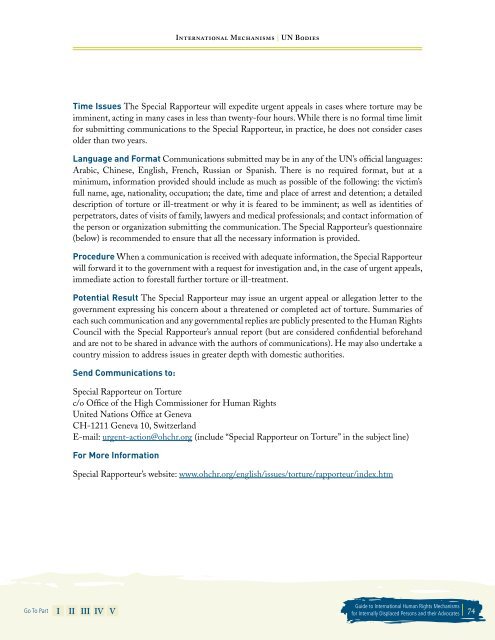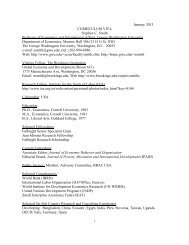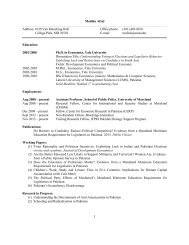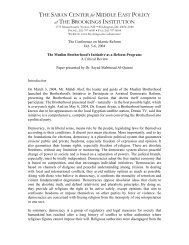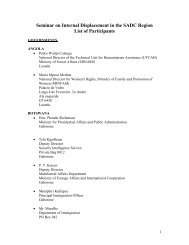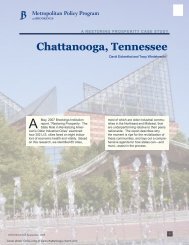Guide to International Human Rights Mechanisms - Brookings
Guide to International Human Rights Mechanisms - Brookings
Guide to International Human Rights Mechanisms - Brookings
You also want an ePaper? Increase the reach of your titles
YUMPU automatically turns print PDFs into web optimized ePapers that Google loves.
Go To Part I II III IV V<br />
<strong>International</strong> <strong>Mechanisms</strong> | UN Bodies<br />
Time issues The Special Rapporteur will expedite urgent appeals in cases where <strong>to</strong>rture may be<br />
imminent, acting in many cases in less than twenty-four hours. While there is no formal time limit<br />
for submitting communications <strong>to</strong> the Special Rapporteur, in practice, he does not consider cases<br />
older than two years.<br />
language and format Communications submitted may be in any of the UN’s official languages:<br />
Arabic, Chinese, English, French, Russian or Spanish. There is no required format, but at a<br />
minimum, information provided should include as much as possible of the following: the victim’s<br />
full name, age, nationality, occupation; the date, time and place of arrest and detention; a detailed<br />
description of <strong>to</strong>rture or ill-treatment or why it is feared <strong>to</strong> be imminent; as well as identities of<br />
perpetra<strong>to</strong>rs, dates of visits of family, lawyers and medical professionals; and contact information of<br />
the person or organization submitting the communication. The Special Rapporteur’s questionnaire<br />
(below) is recommended <strong>to</strong> ensure that all the necessary information is provided.<br />
Procedure When a communication is received with adequate information, the Special Rapporteur<br />
will forward it <strong>to</strong> the government with a request for investigation and, in the case of urgent appeals,<br />
immediate action <strong>to</strong> forestall further <strong>to</strong>rture or ill-treatment.<br />
Potential result The Special Rapporteur may issue an urgent appeal or allegation letter <strong>to</strong> the<br />
government expressing his concern about a threatened or completed act of <strong>to</strong>rture. Summaries of<br />
each such communication and any governmental replies are publicly presented <strong>to</strong> the <strong>Human</strong> <strong>Rights</strong><br />
Council with the Special Rapporteur’s annual report (but are considered confidential beforehand<br />
and are not <strong>to</strong> be shared in advance with the authors of communications). He may also undertake a<br />
country mission <strong>to</strong> address issues in greater depth with domestic authorities.<br />
send communications <strong>to</strong>:<br />
Special Rapporteur on Torture<br />
c/o Office of the High Commissioner for <strong>Human</strong> <strong>Rights</strong><br />
United Nations Office at Geneva<br />
CH-1211 Geneva 10, Switzerland<br />
E-mail: urgent-action@ohchr.org (include “Special Rapporteur on Torture” in the subject line)<br />
for more information<br />
Special Rapporteur’s website: www.ohchr.org/english/issues/<strong>to</strong>rture/rapporteur/index.htm<br />
<strong>Guide</strong> <strong>to</strong> <strong>International</strong> <strong>Human</strong> <strong>Rights</strong> <strong>Mechanisms</strong><br />
for Internally Displaced Persons and their Advocates


